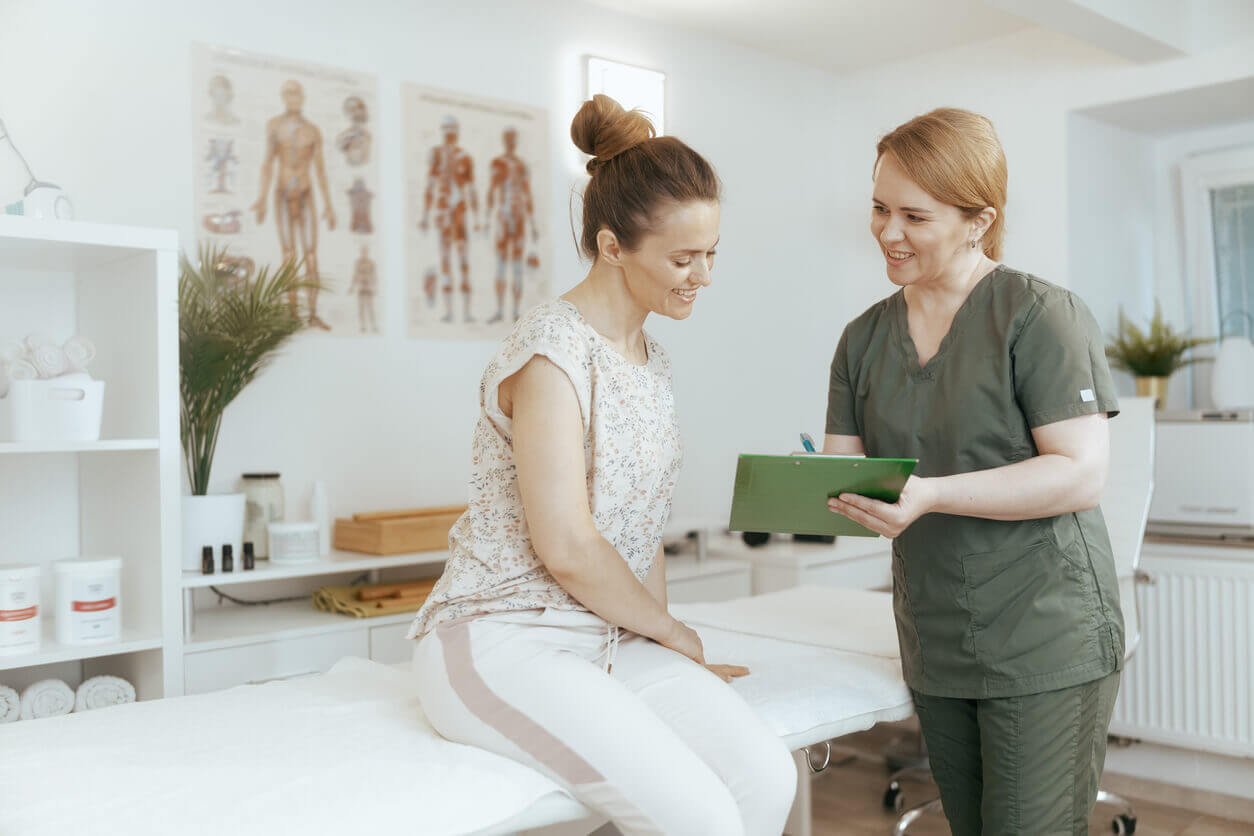
Taking charge of your health is incredibly empowering, and regular wellness exams are a key part of that process for women. These yearly check-ups are essential for anyone with breasts, a vulva, and a uterus. They focus on your reproductive well-being, helping to catch and address potential issues early.
During a wellness exam, your provider will perform various preventive screenings to keep you healthy and address any concerns before they become serious. These exams not only monitor your current health but also help prevent problems from escalating, ensuring you stay on top of your health throughout the years.
Here’s more on this topic.
Why Are Women’s Wellness Exams Important?
Women’s wellness exams are more than just routine visits to the healthcare provider. These are comprehensive evaluations of aspects of reproductive health.
By attending these annual exams, women can benefit significantly through the following:
- Early Detection: Regular exams can catch potential health issues early on, which is key in preventing serious diseases.
- Personalized Care: These visits provide a chance for doctors to tailor advice and treatment plans to individual needs and lifestyles.
- Peace of Mind: Knowing that you’re in good health or addressing any issues early can be reassuring.
Early detection through screenings is especially important. It could mean the difference between simple treatments and more complex interventions.
What Happens During a Woman’s Wellness Exam?
A women’s wellness exam is also a “well-woman” visit. Here’s what typically happens during the visit:
- Initial Check: Your provider will measure your height, weight, and blood pressure.
- Discussion: You’ll talk about your menstrual cycle if you have concerns about its heaviness, pain, or irregularity. If you’re younger than 18, you might receive vaccines like the HPV vaccine.
- Sexual Health: If you’re sexually active, you might discuss birth control options and get tested for sexually transmitted infections (STIs).
- Cancer Screenings: Depending on your age and medical history, you may undergo specific tests:
From ages 21 to 24, you may begin having Pap tests if you choose. Between ages 25 and 65, it’s recommended to get an HPV test, or a Pap and HPV test together, every 5 years.
For those aged 25 to 39, a clinical breast exam should be done every 1 to 3 years. From ages 40 to 50, you should have annual clinical breast exams and mammograms every 1 to 2 years.
As you age or if your health situation changes, your wellness visits will adjust to include other relevant tests and exams. Discuss with your provider what’s right for you based on your health needs.
Understanding Preventive Screenings
Preventive screenings can detect diseases before symptoms appear. Here are some common screenings recommended for women:
- Mammograms: These are X-rays of the breast used to detect breast cancer early. Women over 40 are typically advised to get them annually.
- Pap Smears: This test checks for cervical cancer by looking for abnormal cells in the cervix. Women should start getting Pap smears at 21 and continue every three years or as recommended.
- Bone Density Tests: These tests measure bone strength and are crucial for detecting osteoporosis, especially in post-menopausal women.
Each of these screenings has its timeline and importance, contributing to a comprehensive approach to health.
Benefits of Preventive Screenings
Preventive screenings are essential for maintaining and improving women’s health. Here’s how they make a significant difference:
1. Reduced Mortality Rates
Early detection of serious conditions, such as breast and cervical cancer, allows for timely and effective treatment. This early intervention can significantly lower the risk of death from these diseases. For instance, regular mammograms can detect breast cancer before it spreads, greatly increasing survival rates.
2. Informed Health Decisions
Health screenings are a look into your overall health so you can make well-informed decisions. For example, knowing your cholesterol levels or blood pressure can help you take proactive steps to manage these factors and reduce your risk of heart disease.
3. Improved Quality of Life
Detecting diseases early means you can begin treatment sooner, which often leads to better health outcomes and fewer complications. This proactive approach helps you maintain a higher quality of life by preventing conditions from worsening and causing more severe health issues.
Women’s wellness exams and preventive screenings are vital to a healthy lifestyle. You can schedule your women’s well-exam just like an annual physical. Schedule your women’s wellness exam today.
Women’s Wellness Exam in Orlando, FL
If you are searching for the best women’s health services provider, visit us here at the Premier Medical Group. We have some of the best primary care providers for women in Central and South Florida. Our physicians are dedicated to your health and well-being and advocate for your health.
For any questions about a women’s wellness exam or to schedule a consultation with one of our providers, call us today at (407) 735-2114 or use our convenient appointment request form.
